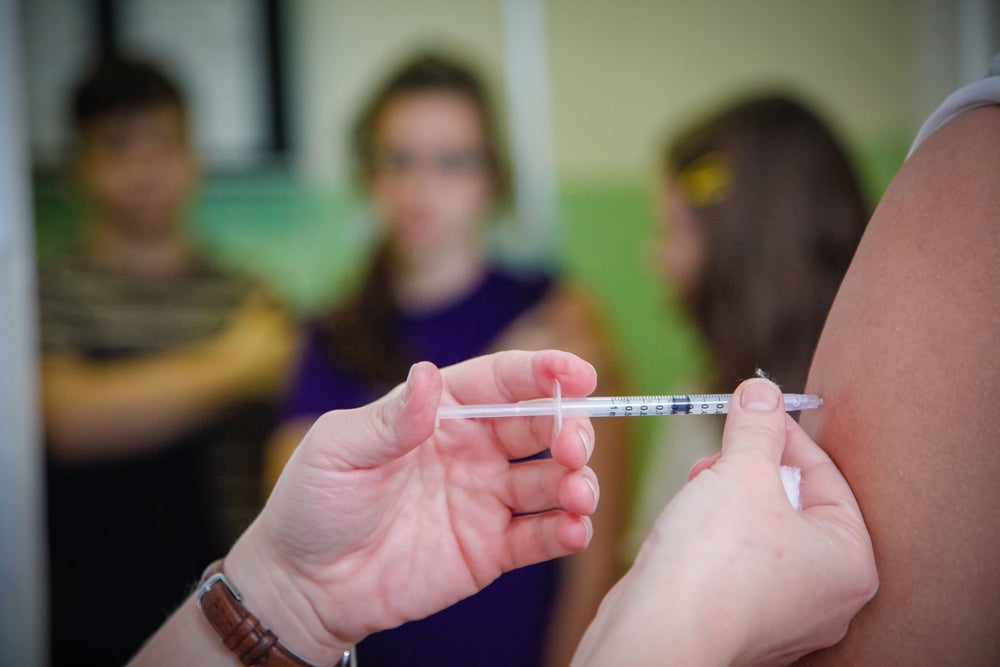Very few sexually active young women in England are now getting infected with human papillomavirus (HPV) due to the vaccination programme run in schools by the National Health Service (NHS).
Almost all cases of cervical cancer are caused by HPV. Cervical cancer is the fourth most frequent cancer in women, and the World Health Organization (WHO) estimated that there were over 500,000 cases in 2018, representing approximately 6.6% of all female cancers. Due to the high incidence of cervical cancer, the WHO has stated that there is an urgent need for effective screening programmes and vaccinations for HPV.
In England, the NHS runs a universal HPV vaccination programme where all boys and girls ages 12-13 are offered the HPV vaccine in school. Those who miss their vaccination can get the HPV vaccine for free through the NHS until their 25th birthday. In 2008, the year the vaccination programme was launched, 15% of young women in England were infected with HPV, which circulates among sexually active people. Two types of the virus, HPV16 and HPV18, cause the majority of cervical cancer.
Over a decade after the vaccine programme was launched, Public Health England (PHE) released a surveillance report of HPV16 and HPV18 infections in sexually active females ages 16-24 years. Data from PHE shows the infection rate dropped to 2% in ages 16-18 years between 2014 and 2018. Remarkably, in a sample of 600 young women tested in 2018, zero infections were found. This data indicates the vaccination programme to be a resounding success for the reduction of HPV infections, and thus greatly reducing the risk of cervical cancer.
England is not the only country to experience huge success from an HPV vaccination programme. Scotland’s HPV vaccine programme has seen similar success, as evidenced by a study that was published in the ‘British Medical Journal’ and lead by Dr Tim Palmer. Similarly, Australia is on track to becoming the very first country to eradicate cervical cancer within the next two decades, as demonstrated in a study published in ‘The Journal of Infectious Diseases’, which was led by Dr Dorothy Machalek.
With such strong, ongoing vaccination programmes, millions of women will soon be protected from HPV worldwide, which will translate to sizeable reductions in the number of cervical cancer cases in the future. Despite this anticipated eradication of HPV infections, GlobalData forecasts the HPV test market to remain strong as the WHO still mandates the need for effective screening programmes, and numerous countries have been implementing national screening programmes, specifically in Europe.

US Tariffs are shifting - will you react or anticipate?
Don’t let policy changes catch you off guard. Stay proactive with real-time data and expert analysis.
By GlobalData




